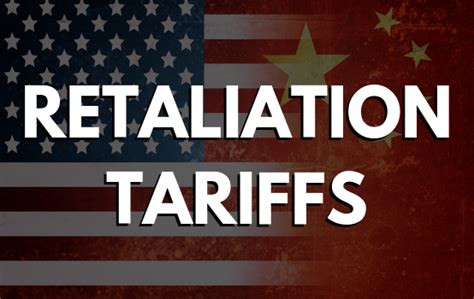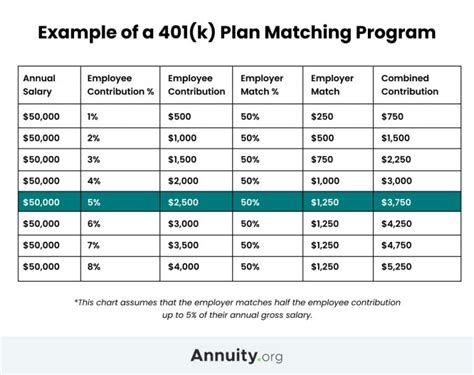
Elon Musk’s acquisition of Twitter, now X, is increasingly viewed by some analysts as a misstep, with growing indications that the billionaire entrepreneur may be experiencing buyer’s remorse as the platform struggles with financial instability, content moderation challenges, and a user exodus.
Elon Musk’s tumultuous tenure as the owner of Twitter, rebranded as X, has been marked by a series of controversial decisions and strategic shifts that have left many questioning the wisdom of the acquisition. While Musk initially touted his vision for a free-speech-centric platform, the reality has been far more complex, leading some observers to suggest that the billionaire entrepreneur may be regretting his $44 billion purchase. From mass layoffs to policy changes and a significant drop in advertising revenue, the platform has faced numerous challenges under Musk’s leadership, fueling speculation about whether he is finally realizing the enormity of the task he undertook.
Since acquiring Twitter in October 2022, Musk has implemented sweeping changes aimed at transforming the platform into an “everything app.” These changes included significant staff reductions, alterations to content moderation policies, and the introduction of a subscription service known as X Premium (formerly Twitter Blue). While Musk argued that these changes were necessary to improve the platform’s financial health and promote free speech, they have been met with widespread criticism from users, advertisers, and civil rights organizations.
One of the most significant challenges facing X has been a sharp decline in advertising revenue. According to reports, advertising revenue has plummeted since Musk took over, with many major brands pausing or halting their ad campaigns due to concerns about the platform’s content moderation policies and the proliferation of hate speech. Musk himself acknowledged the financial difficulties, stating in a tweet that the company had experienced a “massive drop in revenue” and was still struggling to stay afloat.
The changes in content moderation policies have also been a major source of controversy. Musk’s commitment to “free speech absolutism” led to the reinstatement of previously banned accounts, including those of individuals who had been suspended for violating the platform’s rules against hate speech and misinformation. This decision sparked outrage from many users and advocacy groups, who argued that it would create a toxic environment and embolden extremist elements.
Furthermore, the introduction of X Premium, which allows users to pay for verification and other features, has been criticized for undermining the platform’s credibility and creating a two-tiered system where verified users are given preferential treatment. Critics argue that the subscription service has incentivized the spread of misinformation, as users can now purchase verification badges to lend legitimacy to their accounts, regardless of their actual credibility.
Adding to the platform’s woes, a mass exodus of users has been reported, with many individuals and organizations abandoning X in favor of alternative platforms such as Mastodon and Bluesky. Concerns about the platform’s direction, content moderation policies, and the overall user experience have driven this migration, further exacerbating the challenges facing Musk and his team.
Several factors suggest that Musk may indeed be experiencing regret over the Twitter acquisition. The financial struggles of the platform, the ongoing controversies surrounding content moderation, and the user exodus have all contributed to a sense of crisis at X headquarters. Moreover, Musk’s increasingly erratic behavior on the platform, including his public feuds with journalists and critics, has raised questions about his leadership and judgment.
“He may be realizing that running a social media platform is far more complex than building rockets or electric cars,” says technology analyst Sarah Miller. “The challenges of content moderation, user engagement, and financial sustainability are unique to the social media industry, and Musk may have underestimated the difficulty of navigating these issues.”
Musk’s initial vision for Twitter was to transform it into a platform where free speech reigned supreme. However, he has since discovered that unfettered free speech can have unintended consequences, including the proliferation of hate speech, misinformation, and abuse. Balancing free speech with the need to protect users from harm has proven to be a difficult task, and Musk has struggled to find a solution that satisfies all stakeholders.
The acquisition of Twitter has also diverted Musk’s attention and resources away from his other ventures, including Tesla and SpaceX. Both companies have faced their own challenges in recent months, and Musk’s involvement with Twitter has undoubtedly added to his workload and stress levels. Some investors have expressed concern that Musk’s focus on Twitter is distracting him from his responsibilities at Tesla and SpaceX, potentially jeopardizing the future success of these companies.
Moreover, the value of Twitter has plummeted since Musk acquired the platform. Experts estimate that the company is now worth significantly less than the $44 billion that Musk paid for it, representing a substantial loss on his investment. This decline in value is a reflection of the challenges facing the platform and the uncertainty surrounding its future.
Despite the difficulties, Musk remains committed to turning X into a successful business. He has outlined ambitious plans for the platform, including the introduction of new features, the expansion of its user base, and the development of new revenue streams. However, it remains to be seen whether he can overcome the challenges facing X and achieve his goals.
The future of X under Musk’s leadership is uncertain. The platform faces significant challenges, including financial instability, content moderation issues, and a user exodus. Whether Musk can successfully navigate these challenges and transform X into a thriving business remains to be seen. However, the evidence suggests that he may be experiencing buyer’s remorse and realizing the enormity of the task he undertook when he acquired Twitter.
The situation is further complicated by the emergence of competing platforms and the evolving landscape of social media. New platforms like Bluesky and Threads are attracting users who are disillusioned with X, and established platforms like Facebook and Instagram continue to dominate the market. To succeed, X must differentiate itself from its competitors and offer users a unique and compelling value proposition.
In addition to the challenges mentioned above, Musk also faces the task of rebuilding trust with advertisers. Many advertisers remain wary of X due to concerns about its content moderation policies and the potential for their ads to appear alongside offensive or harmful content. To win back these advertisers, Musk must demonstrate that he is committed to creating a safe and brand-friendly environment on the platform.
Furthermore, Musk must address the concerns of civil rights organizations and advocacy groups who have accused X of failing to adequately address hate speech and misinformation. These groups have called on Musk to strengthen the platform’s content moderation policies and invest in resources to combat online abuse. Failure to address these concerns could further alienate users and advertisers, exacerbating the challenges facing X.
The situation is further complicated by the regulatory environment surrounding social media. Governments around the world are increasingly scrutinizing social media platforms and demanding greater accountability for the content that appears on their sites. Musk must navigate this complex regulatory landscape and ensure that X complies with all applicable laws and regulations.
The acquisition of Twitter has been a transformative event for both Musk and the social media industry. It has raised fundamental questions about the role of social media in society, the balance between free speech and content moderation, and the responsibilities of platform owners. The outcome of this experiment will have far-reaching implications for the future of social media and the way we communicate online.
Ultimately, the success or failure of Musk’s Twitter venture will depend on his ability to adapt to the challenges he faces, learn from his mistakes, and build a team that can help him navigate the complexities of the social media industry. Whether he is up to the task remains to be seen, but the stakes are high for both Musk and the future of X.
The impact of Musk’s ownership extends beyond the platform itself. It has also had a ripple effect on the broader tech industry, influencing discussions about free speech, content moderation, and the power of social media companies. The decisions made at X are being closely watched by regulators, policymakers, and other tech executives, as they grapple with the challenges of governing the internet.
The future of X is not just about the platform itself, but also about the future of online discourse and the role of social media in shaping our world. The choices made by Musk and his team will have a lasting impact on the way we communicate, share information, and engage with each other online.
Adding to the complexity is the evolving nature of technology itself. New technologies like artificial intelligence and blockchain are transforming the social media landscape, creating both opportunities and challenges for platforms like X. Musk must stay ahead of these technological trends and adapt his strategy accordingly if he wants X to remain relevant in the years to come.
The challenges facing Musk are not unique to X. Other social media platforms are also grappling with issues such as content moderation, misinformation, and user privacy. However, the spotlight is particularly intense on X due to Musk’s high profile and his controversial approach to managing the platform.
The acquisition of Twitter has been a learning experience for Musk, and it has forced him to confront the complexities of running a large social media company. Whether he can ultimately succeed in transforming X into a thriving business remains to be seen, but the journey has been a fascinating and often turbulent one.
The situation is further complicated by the global nature of social media. X is used by people all over the world, and it must navigate different cultural norms, languages, and legal frameworks. This requires a nuanced and sophisticated approach to content moderation and user engagement.
The future of X is also tied to the broader economic climate. Economic downturns can impact advertising revenue and user spending, making it more difficult for social media platforms to thrive. Musk must be prepared to weather economic storms and adapt his business strategy accordingly.
The success of X also depends on its ability to attract and retain talented employees. The platform has lost many employees since Musk took over, and he must rebuild trust and morale within the company if he wants to attract the best and brightest minds.
The acquisition of Twitter has been a bold and risky move by Musk, and it has the potential to reshape the social media landscape. Whether he can ultimately succeed in his vision remains to be seen, but the world is watching closely.
“The experiment at Twitter is a microcosm of the challenges facing the internet as a whole,” says digital media expert David Chen. “It’s a test of whether we can create online spaces that are both free and safe, and whether we can find a sustainable business model for social media platforms.”
The future of X is also linked to the broader debate about the power of social media companies and their role in shaping public discourse. Some argue that these companies have too much power and that they should be subject to greater regulation. Others argue that they are essential platforms for free expression and that they should be allowed to operate with minimal government interference.
The choices made at X will have implications for this debate, and they could influence the future of internet governance. Musk has positioned himself as a champion of free speech, but he must also balance that commitment with the need to protect users from harm.
The acquisition of Twitter has been a transformative event for Musk, and it has forced him to confront the complexities of the social media industry. Whether he can ultimately succeed in his vision remains to be seen, but the journey has been a fascinating and often turbulent one.
Frequently Asked Questions (FAQ)
1. Why do some analysts believe Elon Musk regrets buying Twitter (now X)?
Analysts suggest Musk may regret the purchase due to a combination of factors, including the platform’s financial struggles evidenced by a significant decline in advertising revenue, ongoing controversies surrounding content moderation policies following Musk’s commitment to “free speech absolutism,” and a reported mass exodus of users concerned about the platform’s direction and policies under his leadership. The plummeting value of the company, now worth considerably less than the $44 billion he paid, further fuels this speculation.
2. What were some of the major changes Elon Musk implemented after acquiring Twitter, and how did they impact the platform?
Musk implemented several significant changes, including mass layoffs, alterations to content moderation policies reinstating previously banned accounts, and the introduction of X Premium (formerly Twitter Blue), a subscription service offering verification and other features. These changes led to widespread criticism, a decline in advertising revenue as major brands paused campaigns due to content moderation concerns, and a user exodus to alternative platforms. Critics argued that the subscription service undermined the platform’s credibility and incentivized the spread of misinformation.
3. How has advertising revenue been affected since Elon Musk took over Twitter (X), and why?
Advertising revenue has reportedly plummeted since Musk acquired Twitter. Many major brands paused or halted their ad campaigns, primarily due to concerns about the platform’s content moderation policies and the proliferation of hate speech. Advertisers were wary of their ads appearing alongside offensive or harmful content, leading to a “massive drop in revenue,” as Musk himself acknowledged.
4. What is X Premium (formerly Twitter Blue), and what criticisms has it faced?
X Premium is a subscription service that allows users to pay for verification and other features, such as the ability to post longer tweets and edit posts. It has faced criticism for undermining the platform’s credibility by allowing users to purchase verification badges, regardless of their actual credibility, potentially incentivizing the spread of misinformation. Critics also argue that it creates a two-tiered system where verified users receive preferential treatment.
5. What are some alternative platforms that users are migrating to from Twitter (X), and why are they leaving?
Users are migrating to alternative platforms such as Mastodon, Bluesky, and Threads. The primary reasons for leaving X include concerns about the platform’s direction under Musk’s leadership, controversial content moderation policies, the perceived rise of hate speech and misinformation, and the overall user experience. These platforms offer different approaches to content moderation and community management, attracting users seeking alternatives to X’s current environment.









